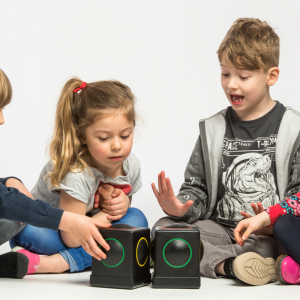“Music education can help spark a child’s imagination or ignite a lifetime of passion.
When you provide a child with new worlds to explore and challenges to tackle, the possibilities are endless.”
1. Learning. Early music education exposure appear to accelerate brain development in young children, particularly in the areas off the brain responsible for processing sound, language development, speech perception and reading skills.
2. Intelligence. Music education research shows a causal link between music and spatial intelligence (the ability to perceive the world accurately and to form mental pictures of things). This kind of intelligence, is critical to the sort of thinking necessary for everything from solving advanced mathematics problems to being able to pack a book-bag with everything that will be needed for the day.
3. Improved test scores. Students who study the arts are more successful on standardized tests such as the SAT. They also achieve higher grades in high school.
4. Helping special needs children. Music can have a powerful impact on kids with special needs. It helps them find a way to communicate and open up, which they may struggle with otherwise. For this reason, and despite cuts to music programs, schools are increasingly implementing music therapy after-school programs to benefit students with disabilities.
5. Language skills. Recent studies have clearly indicated that musical training physically develops the part of the left side of the brain known to be involved with processing language, and can actually wire the brain’s circuits in specific ways. Linking familiar songs to new information can also help imprint information on young minds.
6. In music, a mistake is a mistake; the instrument is in tune or not, the notes are well played or not, the entrance is made or not. It is only by much hard work that a successful performance is possible. Through music study, students learn the value of sustained effort to achieve excellence and the concrete rewards of hard work.
7. Team-work. Music education enhances teamwork skills and discipline. In order for an orchestra to sound good, all players must work together harmoniously towards a single goal, the performance, and must commit to learning music, attending rehearsals, and practicing.
8. Self-esteem. Music education provides children with a means of self-expression. Now that there is relative security in the basics of existence, the challenge is to make life meaningful and to reach for a higher stage of development. Everyone needs to be in touch at some time in his life with his core, with what he is and what he feels. Self-esteem is a by-product of this self-expression.
9. Life-long skills. Music education develops skills that are necessary in the workplace. It focuses on “doing,” as opposed to observing, and teaches students how to perform, literally, anywhere in the world. In the music classroom, students can also learn to better communicate and cooperate with one another.
10. Confidence. Music performance teaches young people to conquer fear and to take risks. Dealing with it early and often makes it less of a problem later. Risk-taking is essential if a child is to fully develop his or her potential.
